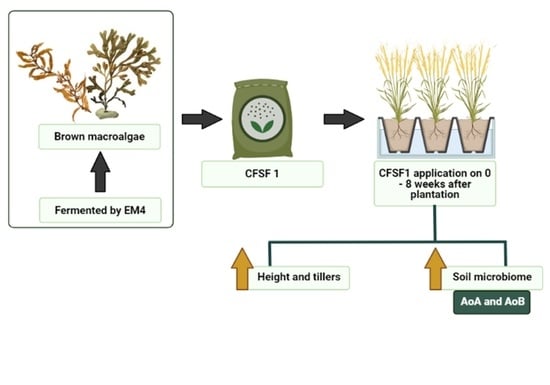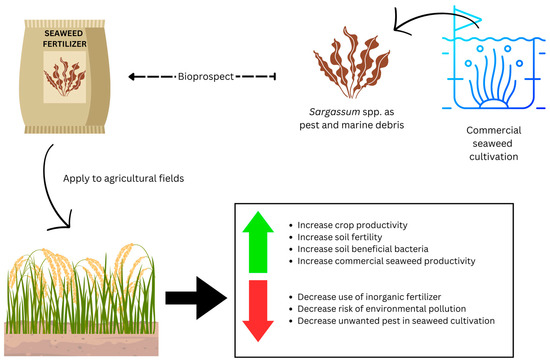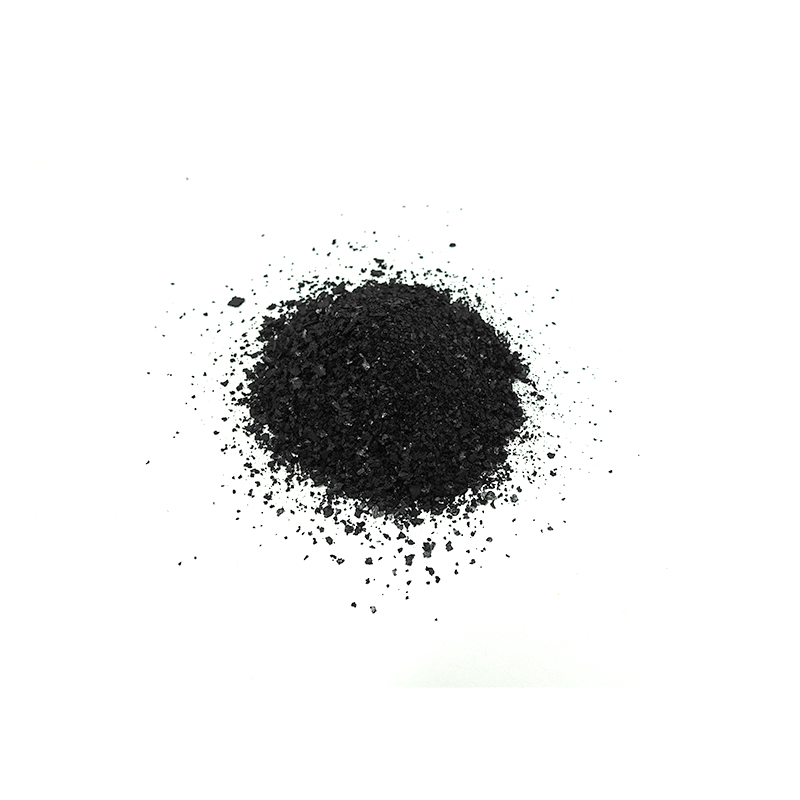Introduction
When it comes to gardening and farming, the selection of the right fertilizer is crucial in ensuring optimum growth and health of plants. As environmental consciousness and pursuit for sustainable practices continue rising, organic seaweed manure has become a favorite among home gardeners as well as commercial growers. It goes without saying that this choice finds its basis on effectiveness but also from it being sourced naturally as well as its eco-friendly properties.
Organic seaweed manure enjoys a rich nutrient profile that does not harm ecosystems on earth. This powerful organic fertilizer is made by processing the seaweed found in abundance in seas into a form that supports natural processes that enhance plant growths. The fertilizer’s popularity has increased with more growers acknowledging these advantages not only to enhancing plant health, but also supporting sustainability in agriculture.
The gardeners and commercial farmers are going for organics to lower their chemical footprint while encouraging a more natural growing environment. In line with this objective is the use of organic seaweed manure which provides an effective solution that also takes care of the environment. In this guide, we will look at what makes seaweed fertilizer different from other fertilizers and how it can be used as the best fit for promoting healthy plants and environments around us.
The Nutritional Composition of Organic Seaweed Fertilizer
Organic seaweed fertilizer is renowned for its substantial nutritive benefits that promote robust plant growth. This type of fertilizer is derived from natural marine sources, making it a sustainable choice that is rich in essential nutrients for optimal plant development.
Definition of Organic Seaweed Fertilizer
Organic seaweed fertilizers are produced from various species of seaweed collected from pristine, unpolluted waters. Once harvested, the seaweed is dried and processed into either powder form or liquid extracts, packed with an abundance of nutrients, which makes it a preferred choice for environmentally-conscious gardeners and farmers.
High Nutrient Content
The efficacy of organic seaweed fertilizer lies in its comprehensive nutrient profile, which includes:
- Macronutrients: It provides nitrogen, phosphorus, and potassium (NPK), crucial elements that support all phases of plant growth, from vegetative growth to flowering and fruiting.
- Micronutrients: Seaweed fertilizers are abundant in essential minerals such as iron, manganese, zinc, copper, and boron. These support various plant metabolic functions and overall health.
- Natural Hormones & Vitamins: These fertilizers often contain natural plant hormones such as cytokinins, auxins, and gibberellins, which boost cell division, and enhance shoot and root growth, helping plants withstand environmental stress. Vitamins like E and B12 in seaweeds bolster disease resistance and general plant vitality.
Impact of Seaweed Nutrients on Plant Growth
The broad spectrum of macro and micronutrients in organic seaweed fertilizer profoundly influences plant growth:
- Increased Root Development: Hormones in seaweed stimulate extensive root development, enhancing nutrient uptake and photosynthesis.
- Soil Improvement: The organic matter and microbial stimulants in seaweed improve soil structure, fostering beneficial microbial activity and enhancing soil fertility.
- Enhancing Plant Defense: The rich supply of micronutrients like iron, manganese, zinc, copper, and boron play a crucial role in plant defense, reducing the need for synthetic chemicals.
Organic seaweed fertilizer offers a holistic approach to plant nutrition, ensuring healthier plants and reducing reliance on chemical fertilizers, thereby supporting a healthier ecosystem. With its nutrient-rich composition, it stands out as one of the best choices for gardeners and farmers focused on boosting production while maintaining ecological balance.

Major Pros of Organic Seaweed Fertilizer
Organic seaweed fertilizer offers significant benefits for plant growth, soil health, and environmental sustainability. Its unique composition positions it as a holistic approach to plant nutrition.
Increased Crop Growth and Yield
Organic seaweed fertilizer is renowned for enhancing crop productivity and development significantly. It contains naturally occurring hormones such as cytokinins, auxins, and gibberellins, which promote vigorous growth and high yield. These hormones aid in cellular expansion, new tissue formation, and accelerate growth rates, making them particularly beneficial for the rapid development of citrus plants.
Improvement of Soil Health
Applying organic seaweed fertilizer benefits soil health substantially. By adding organic matter to the soil, seaweed extracts improve soil structure, enhance water retention, and foster the growth of beneficial microorganisms. This leads to better root development and water uptake and fortifies the soil against erosion and degradation. Additionally, the diverse mix of essential trace elements in seaweed helps replenish nutrients in depleted soils.
Environmental Benefits
Opting for organic seaweed fertilizers supports sustainable gardening and farming practices. These natural options significantly reduce the risks associated with nutrient runoff, which can lead to eutrophication in nearby water bodies. By using organic products, gardeners and farmers minimize their chemical footprint, thus reducing pollution and helping maintain ecological balance.
Moreover, as seaweed is a renewable resource, its use in agriculture promotes the preservation of natural ecosystems and supports long-lasting agricultural practices without causing irreversible environmental damage.
Organic seaweed fertilizer not only has positive impacts on plant growth and soil health but is also environmentally friendly. Incorporating this type of fertilizer into gardening or farming practices allows individuals to observe notable improvements in plant performance while contributing to environmental conservation.
Tips for Applications of Organic Seaweed Fertilizer
The use of organic seaweed fertilizer effectively enhances plant health and maximizes the environmental benefits associated with this natural resource. Proper application ensures plants receive the nutrients they need without wastage or harming the environment. Here’s how to best apply organic seaweed fertilizer in your garden or farm:
Best Practices for Application of Seaweed Fertilizer
- Times: The optimal times to apply organic seaweed fertilizer are at the beginning of plant growth and during fruit formation. This typically means early spring and then a midseason application for most flowering and fruit-bearing plants.
- Method: Organic seaweed fertilizer is available in meal, powder, and liquid forms. Liquid forms should be diluted as directed and can be used directly on the soil or as a foliar spray absorbed by the leaves. Solid forms should be spread gently around the base of the plant and raked into the topsoil to prevent runoff.
- Frequency: Consistent applications can provide ongoing nutrition, but it is crucial to follow the manufacturer’s recommendations. Typically, applications are made every 4-6 weeks throughout the growing season.
Dosage and Composition
- The appropriate dosage of organic seaweed fertilizer varies depending on the specific needs of different plant varieties and the existing nutrient levels in the soil. A soil test can help identify nutrient deficiencies, allowing for tailored fertilizer application.
- For many houseplants and garden crops, a typical dilution for liquid seaweed is about 1 ounce per gallon of water, applied every two to three weeks during the growing period.
Common Mistakes to Avoid
- Over-application: Using excessive amounts of fertilizer can lead to unbalanced nutrition and environmental issues like nitrogen runoff. It is crucial to adhere to recommended quantities.
- Poor Timing: Applying fertilizers like foliar sprays under full sunlight can lead to leaf burns. The best times for application are early mornings or late afternoons to avoid intense sunlight.
- Ignoring pH: Seaweed naturally lowers soil pH, which is an important consideration, especially for pH-sensitive plants. Monitoring and adjusting soil pH as necessary is crucial for optimal plant health.
By adhering to these guidelines, gardeners and farmers can improve the effectiveness of organic seaweed fertilizer, leading to healthier crops and more environmentally friendly gardening practices. This approach ensures that each application contributes to the full potential of your crops in a sustainable manner.
Real-Life Scenarios of Success
The practical benefits of organic seaweed fertilizer are evidenced by numerous success stories from farmers around the world. Here are some detailed instances demonstrating how various crops have benefitted from this sustainable practice:
California Vegetable Farm
- Overview: A medium-sized farm in California switched from synthetic to organic seaweed fertilizers to enhance their vegetable crops, focusing on lettuce and spinach.
- Application: The farm applied seaweed fertilizer bi-weekly throughout the summer growing season.
- Results: By season’s end, the farm saw a 20% increase in yield and improvements in both taste and crop health. Soil tests indicated enhanced microbial activity and better nutrient retention, leading to higher market prices due to the superior quality of the produce.
Florida Citrus Orchard
- Overview: A citrus orchard in Florida incorporated organic seaweed fertilizer into their regimen to address declining fruit output.
- Application: Regular applications were made throughout the trees’ growth cycle, including additional treatments during the flowering stage.
- Results: The orchard experienced a notable decrease in tree diseases and a 30% increase in fruit production over two years. This nutritional boost from seaweed helped strengthen the trees’ immune systems and enhance fruit yield, validating its effectiveness in citrus cultivation.
Urban Community Garden
- Overview: An urban community garden in New York City turned to organic seaweed fertilizer to boost its small-scale food production, particularly focusing on potted tomatoes and herbs.
- Observations: Gardeners reported quicker growth, increased herb yields, and more robust tomato plants compared to previous years using synthetic fertilizers.
These accounts clearly illustrate that organic seaweed fertilizer is versatile and effective across different plant types and climates. By adopting organic methods, farmers not only support sustainable agriculture but also enjoy healthier crops and better yields, contributing positively to their local ecosystems and markets.

Combining Other Organic Practices with Kelp
Integrating organic seaweed fertilizer with other organic gardening practices maximizes the benefits and enhances a holistic approach to plant health and environmental sustainability. Here’s how you can incorporate organic seaweed into your gardening or farming for better results:
Complementary Organic Practices
- Crop Rotation: This involves alternating the types of crops planted on a plot of land each year to prevent depleting soil nutrients and to manage pests and diseases. Utilizing kelp fertilizer after each crop cycle can replenish soil nutrients before planting another crop with different nutritional needs.
- Companion Planting: Planting various crops together can help control pests, facilitate pollination, create habitats for beneficial organisms, maximize space utilization, and enhance crop yields. Applying kelp fertilizer in such areas can improve the soil condition not only for the main crop but also for the companion plants.
- Cover Cropping: Growing cover crops like clover or rye during the off-season helps prevent soil erosion, enhance soil fertility, and manage weeds, pests, and diseases. When these cover crops are incorporated into the soil, they return essential nutrients and organic matter. Enhancing these crops with seaweed fertilizer can optimize their benefits.
Enhancing Seaweed Fertilizer with Other Organic Amendments
- Adding Compost: Combining seaweed fertilizer with compost enriches the soil by providing a diverse range of nutrients and microorganisms. Compost offers balanced nutrition, while seaweed adds specific trace elements and growth hormones that improve plant development.
- Using Mycorrhizal Fungi: Incorporating mycorrhizal fungi with kelp fertilizer significantly increases nutrient uptake, especially phosphorus. These fungi form a symbiotic relationship with plant roots, extending them and increasing the nutrient absorption area.
Practical Application Tips
- Balanced Fertilization: When using seaweed along with other organic fertilizers, it’s crucial to balance the nutrients provided. Assess your soil and existing nutrient levels to adjust your application rates for a comprehensive nutrient regimen that avoids nutrient lockout.
- Regular Monitoring: Continuously monitor how the mixed organic amendments affect the soil. Regular soil testing can guide adjustments to ensure all organic inputs work synergistically to enhance soil health and promote plant growth.
Embracing these integrated organic practices can significantly enhance the effectiveness of kelp fertilizer, contributing to a more sustainable and productive agricultural system. These strategies not only support plant growth and increased yield but also foster a thriving ecosystem within the soil.
Conclusion: Enhancing Plant Health with Organic Seaweed Fertilizer
In conclusion, it is undeniable that organic seaweed fertilizer is one of the most important methods of organic agriculture because it can help plants to grow better, keep the soil fertile and give people healthy food. Organic seaweed fertilizer contains all the nutrients which plants need. It can improve our plants’ vitality when we apply it to our plants. In addition, many farmers also use some seeds and weeds from their farms as organic fertilizers so we not only get healthy plants with organic seaweed fertilizer but we at the same time make our earth better.
However, too much fertilizer will do harm to both our plants and environment, such as pollution. We should only add reasonable amount of fertilizer. I believe that organic seaweed fertilizer is the best fertilizer for plants. In conclusion, we can improve our plants’ vitality, keep our soil fertile and give people healthy food by using organic seaweed fertilizer.
Sustainable agriculture is an ongoing learning process. Organic seaweed fertilizer is not a magic entity, just like humans and any process in nature are not magic. One must constantly learn and adapt. Organic seaweed fertilizer is part of the process and thinking of the sustainable farmer, it is not a separate entity or product. Organic seaweed fertilizer is an important part of sustainable agriculture, but only when gardeners and farmers commit and engage in sustainable agriculture, seawater, organic seaweed, soil and a community of people dedicated to sustainable development.
The use of organic seaweed in agriculture is an ongoing process, like agriculture itself: we grow, learn, experiment and share. We hope that many persons will embrace and utilise the use of organic seaweed fertilizer in their agriculture and will be part of the community of those committed to sustainable development.
By using organic seaweed fertilizer, farmers and gardeners can know that they are not just producing healthier plants and crops, but also nurturing an Earth that our children and grandchildren will be lucky to inhabit, long into the future. Let’s learn and use more organic ways to boost plants and our own planet.
FAQs: Common Questions About Organic Seaweed Fertilizer
What is organic seaweed fertilizer made from?
Organic seaweed fertilizer is made from a variety of species of seaweeds, primarily from the world’s oceans. It is harvested from unpolluted ocean areas and then dried and processed into powder or liquid extracts. It can be used as a spray or sprayed fertilizer which are directly applied to plants and the soil.
How does organic seaweed fertilizer benefit plants?
As nutrients such as nitrogen, potassium and phosphorus are more readily absorbed by plants when consumed through seaweed fertilizer, along with several trace minerals and natural growth hormones. These, in turn, make plants grow healthier and stronger to produce better harvest, increase rooting, and fend off diseases.
Can organic seaweed fertilizer be used on all plants?
Yes it is. Organic seaweed fertilizer can be used for pretty much anything you plant, veges, fruit, flowers, even houseplants. It is very gentle on plants. Can be sued for different purposes and adjust the plants’ needs.
How often should I apply organic seaweed fertilizer?
Exactly how often you should apply it depends on which exact product you use and what plants you’re fertilising, but as a general guide, it’s best to apply seaweed fertilizer once every 4 to 6 weeks while plants are growing to keep nutrient levels nice and high.
Is organic seaweed fertilizer environmentally friendly?
Yes, It is eco-friendly fertilizer because it is made by nature renewable source such as sea weed .It not create chemical running off and polluted place in alcohol, faruol and don’t have any orible to synthetic food equiptment such solar and heat and eat the soil and debri units well and support to agriculture practics which, are more sustainable to human and agriculur habbitant .
Where can I buy organic seaweed fertilizer?
The fertilizer is available in most garden centres, nurseries and online gardening-supply outlets. It is wise to buy a well-known brand, to be sure you are getting the best quality and value for organic fertilizer.
Here are three scholarly articles discussing the benefits and applications of organic seaweed fertilizer:
- Effects of Seaweed-Extract-Based Organic Fertilizers on Fruit: This study focuses on the impact of seaweed-extract-based organic fertilizers on the levels of mineral elements, sugar-acid components, and hormones in Fuji apples. The research indicates that seaweed fertilizer can significantly improve fruit quality and plant health by enhancing photosynthetic rates and chlorophyll content.
- Sustainable Use of Organic Seaweed Fertilizer: This research highlights how using organic seaweed fertilizer can improve the metagenomic function of microbial communities in the soil of rice plants. The study shows that seaweed fertilizers can enhance soil fertility and plant growth, which are crucial for sustainable agriculture practices .
- Effect of Foliar Application of Seaweed on Yield and Essential Oil Composition: This article examines how foliar application of seaweed-based fertilizer affects the yield, essential oil, and chemical composition of coriander. Results show that seaweed fertilizers can boost plant growth and increase yield effectively .







